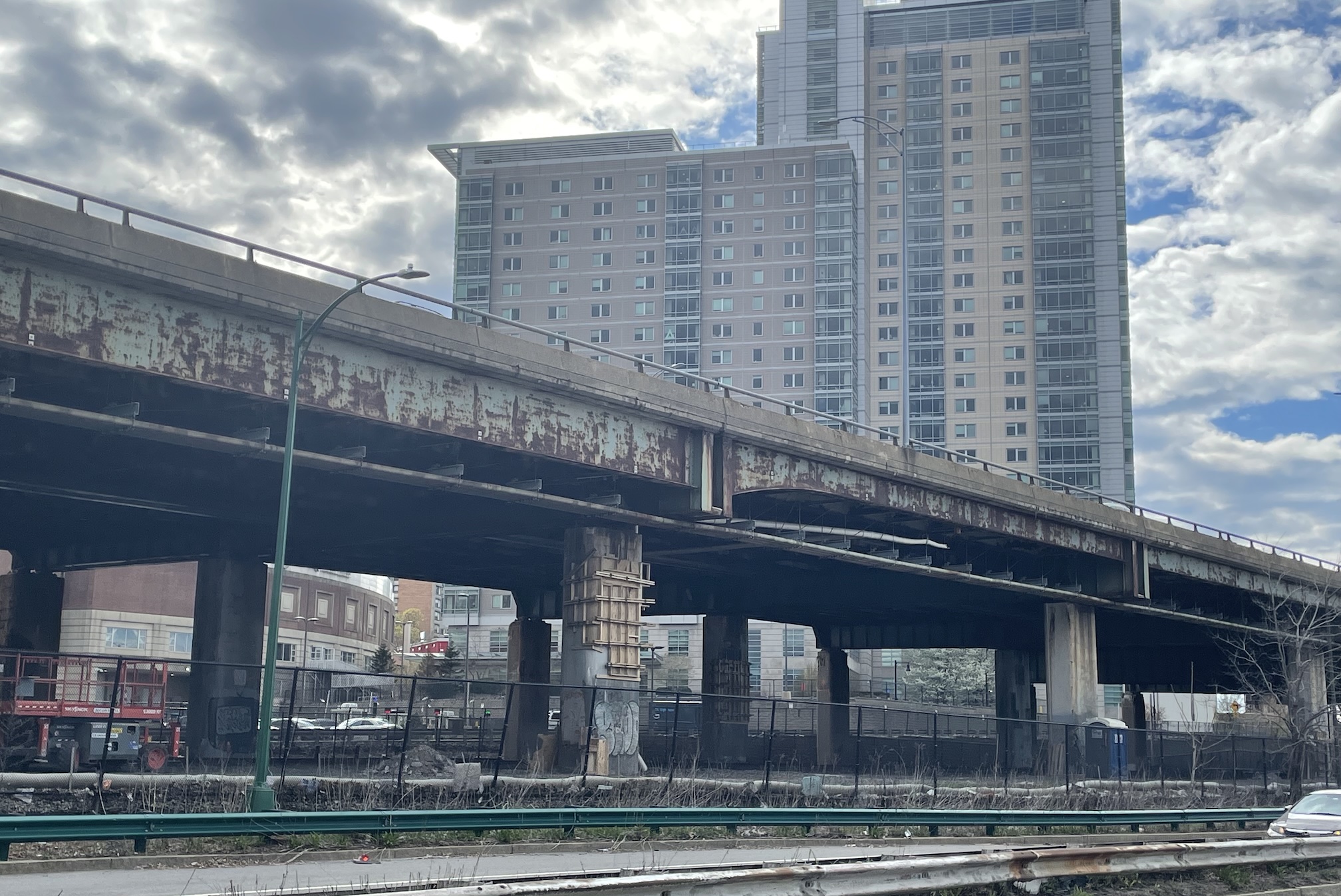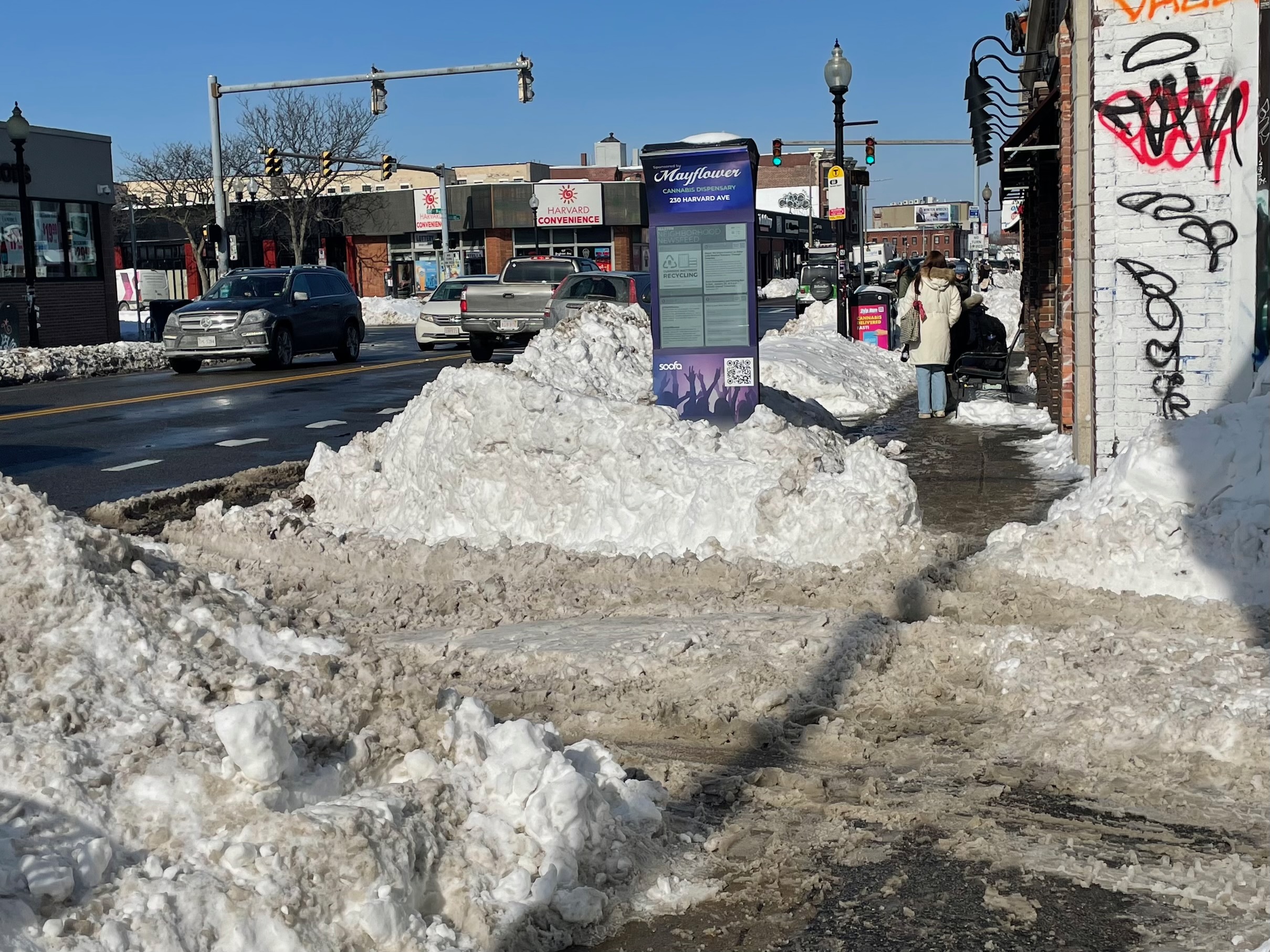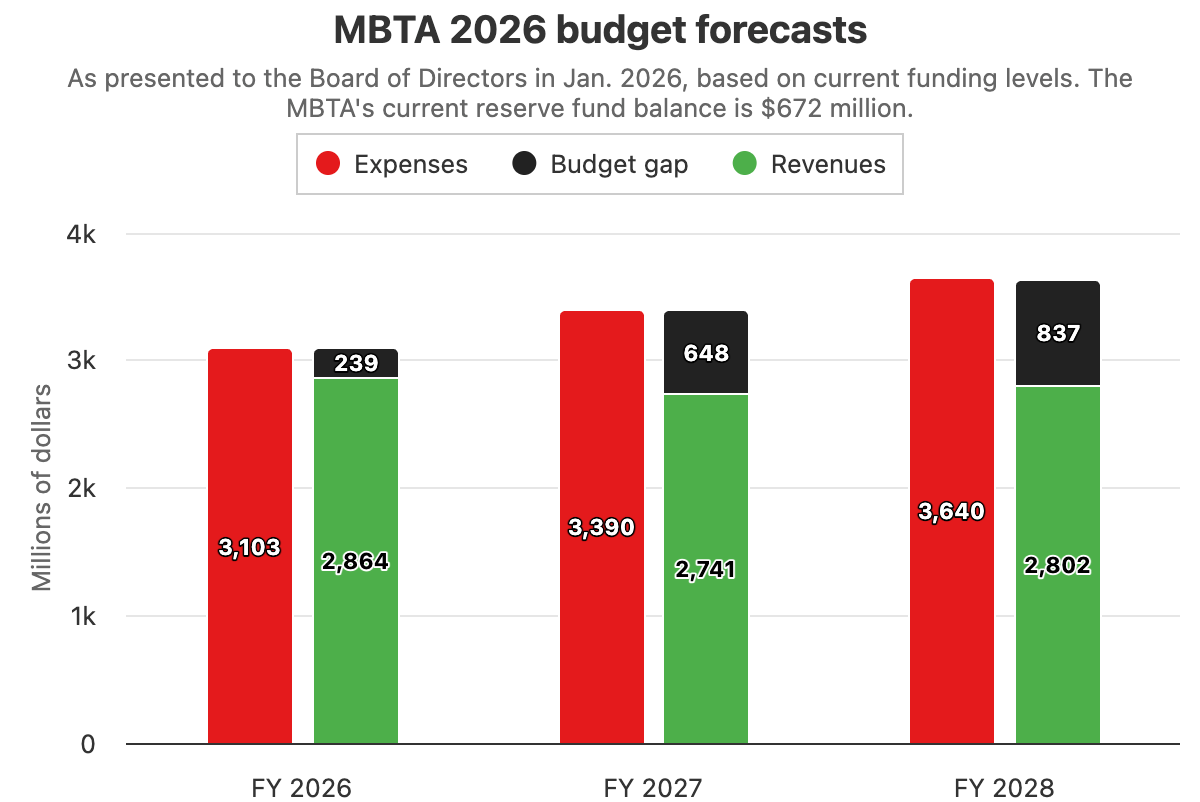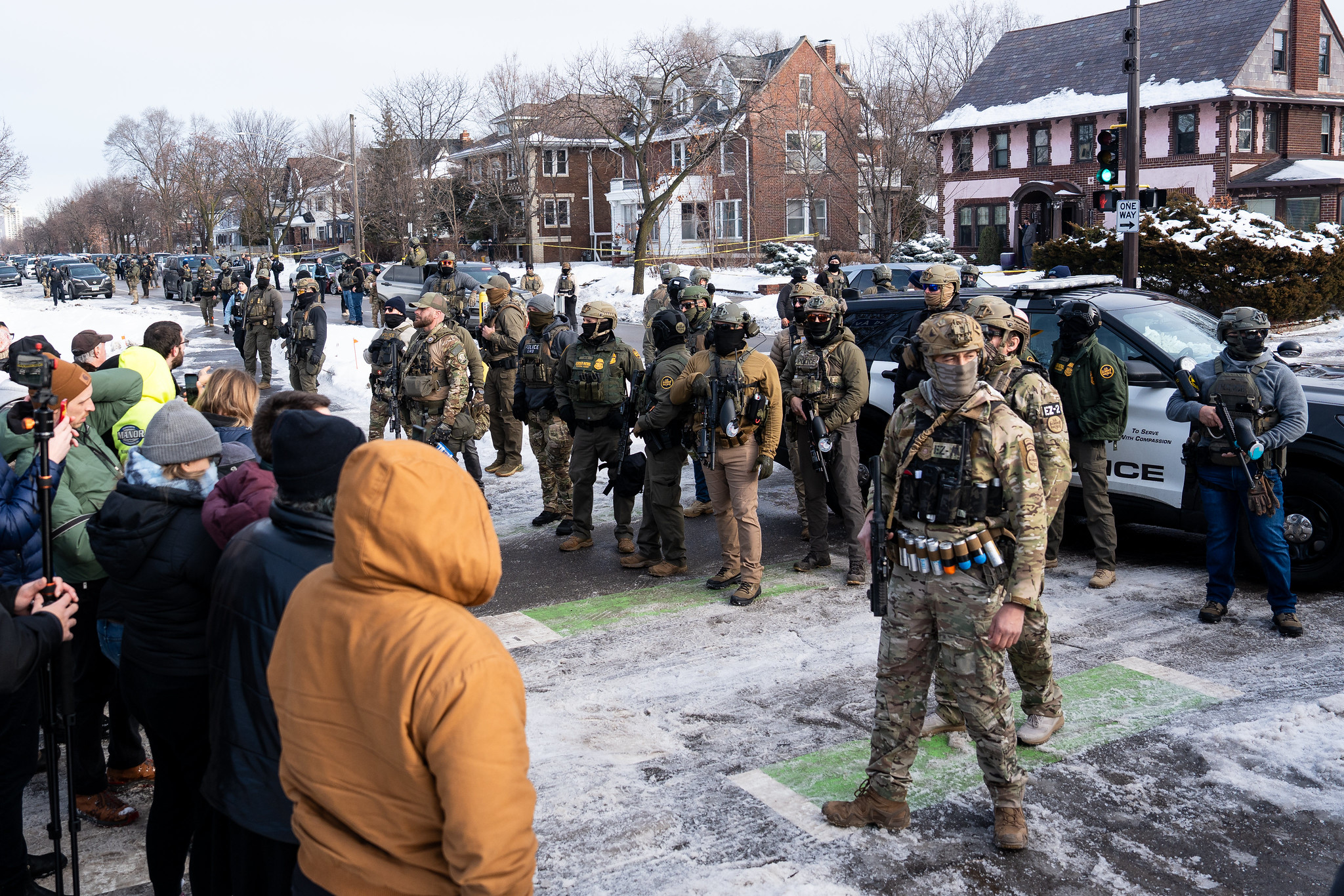MassDOT is pausing to re-evaluate its plans for the Allston Multimodal Project after President Trump and his allies in Congress rescinded $327 million in federal funding for the project.
In a memo to members of the project's citizen advisory task force this week, MassDOT officials wrote that the agency "is committed to achieving the goals of the Allston Multimodal Project and is working on a path forward, including the action of hiring outside experts to perform an in-depth cost analysis and independent engineering analysis to examine how to deliver the most
transportation benefits with available resources."
"Our charge to the engineering consultant will be to maximize the transportation and other benefits within available resources," MassDOT Director of Megaprojects Luisa Paiewonsky told stakeholders at an Allston Multimodal Project task force meeting Wednesday evening.
MassDOT will also pause work on an Environmental Impact Statement (EIS) for the project – a major piece of environmental permitting that would have finally determined the project's scope and conceptual design.
"We don't have the funding to support what was described in the EIS," Paiewonsky admitted.
MassDOT tightens its belt
Even before Washington cancelled its funding, officials had not come up with a credible financial plan to build the project.
An oft-cited project cost estimate of $2 billion dates to 2022, but that figure has not been updated to account for inflation or the impacts of the Trump administration's new tariffs.
At the task force meeting Wednesday evening, Paiewonsky told stakeholders that one of the first tasks for the project evaluation would be an "in-depth cost analysis, to make sure we understand how much the project costs."
"That involves looking at essential elements of the project, making sure that our current assumptions are correct, that the value hasn't been eaten away by tariffs or inflation," said Paiewonsky.
The re-evaluation of the project will also include a strategic analysis of what the state can afford to build, and which project elements will deliver the most value for limited taxpayer dollars.
"It could be could be different ways of phasing, or taking different approaches, looking at different materials, finding efficiencies, maybe rescaling to available resources," explained Paiewonsky.
"We're just scoping the work, and making our procurement plan into place, but we will have regular conversations with the task force and update you with where things stand," she added.
Stakeholders offer up unpopular infrastructure for cost-cutting
At Wednesday's task force meeting, most stakeholders stressed that they want MassDOT to continue working on the project, in spite of the loss of federal funding.
But they also offered several suggestions for cutting costs by jettisoning some of the project's more controversial elements.
"Our back-of-the-envelope calculation is that we would save at least $327 million by building the Turnpike with 6 lanes instead of 8 lanes," argued Emily Norton, executive director of the Charles River Watershed Association.
Norton and her organization have argued that nearby segments of the Turnpike have been restricted to 6-lane cross-sections for most of the past decade to facilitate air-rights construction projects in the Fenway, and that the Allston Multimodal Project would continue to constrict the Turnpike to 6 lanes through Allston for most of the project's decade-long construction period.
Other stakeholders urged MassDOT to scrap their planned rail layover yard in the center of the project.
One silver lining associated with the loss of federal funding is that MassDOT is now free to move forward with uncontroversial elements of the project's plan – like a replacement for the Cambridge Street bridge – even though they still don't have a formal plan or environmental permits for the entire project.
Matt Petersen, the Boston Transportation Department's representative to the project team, warned against stripping out the proposed street connections, car-free pathways, and transit improvements so that the proposal turns into a stripped-down highway renovation, with other elements postponed indefinitely.
"Which project do we build now, and which project component do we build never? Which sometimes happens – I'm thinking about South Coast Rail Phase 2."
"We want to make sure we are really keeping our eye on the many other transformative benefits and changes that this project can bring about, and making sure that those are really valued as core parts of this project," said Petersen.






